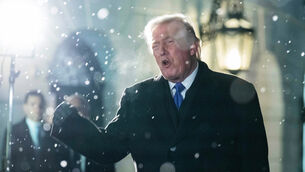Sex, September 11, and the separatist vote
THE race for the Democratic nomination continues to defy pundits’ predictions. Senator John Kerry’s improbable rise seem destined for disaster a little over a week ago when the Drudge Report, an internet scandal sheet, alleged that major media organisations were suppressing evidence of an affair between front-runner Kerry and Alexandra Polier, a young journalist at Associated Press. However, the ‘scandal’ never took off.
The major networks and broadsheets all but ignored it. It was left up to the foreign press to do the digging. Within a week, the scandal that wasn’t appeared to have faded from the mind of voters before it was even firmly planted there. Yet, speaking off the record, media executives indicated they had plenty of salacious details on Mr Kerry’s private life but would not publish or broadcast them unless they shed light upon some wrongdoing or other issue of legitimate public interest.














